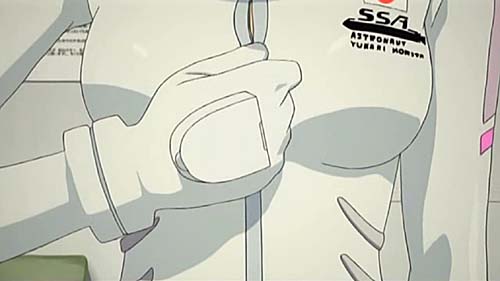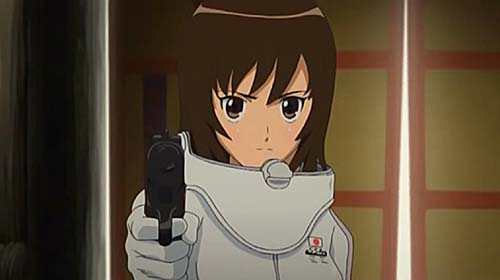
The first Philip K. Dick book I ever bought. I now have more titles by Dick on my shelves than by any other writer.
It’s Philip K. Dick week. Four of his novels are being reissued by the Library of America: The Man in the High Castle, The Three Stigmata of Palmer Eldritch, Ubik and Do Androids Dream of Electric Sheep? It’s about time. The Man in the High Castle is an obvious choice: it’s possibly his best, and it’s one of his more approachable titles for non-SF readers. ((Eve Tushnet comments on the The Man in the High Castle here (scroll down to February 4, 2006).)) The Three Stigmata of Palmer Eldritch is also outstanding. Ubik, however, is a mess. It should have been Dick’s masterpiece, but the first seventy or so pages are so painfully bad that I can’t recommend it. Do Androids Dream of Electric Sheep? is included, I suspect, because a popular movie that I hated was based loosely — very loosely — on it. Instead of the latter two novels, I would have suggested Martian Timeslip and a selection of his short stories.
The new edition provided the occasion for Charles McGrath to write an account of Dick, emphasizing Dick’s mental instability, amphetamine use and “pulpish sensibility.”
In the current issue of Commonweal, John Garvey writes a much more detailed and sympathetic appreciation of Dick’s work, focusing on the gnosticism of this most peculiar Episcopalian convert. (It’s not available online unless you have a subscription.) He comes much closer than McGrath as to why Dick is worth reading:
In these and his other stories, Dick creates characters struggle who not only for salvation, for ultimate truths, but sometimes merely to be decent human beings — and the two struggles are really one. What reality is and what it means to be authentically human are intrinsically linked. Dick’s answers, such as the are, range randomly from new-age nonsense, through his own episodes of delusion and paranoia, to a Gnostic Christianity that contains more of the pain and compassion of real Christianity than most Gnostic visions. Many Gnostic writings advance an elitism that delights in being among the chosen in who the divine light resides. Dick saw glimmers of the shattered divine light in many confused and struggling people, and he found something of cosmic significance there, both in the light and in the struggle.
A lot of movies have been made from Dick’s stories. I’ve only seen Blade Runner, which I loathed — I had read the book, which the movie betrayed. I may watch A Scanner Darkly someday, but I expect that it will also disappoint me. I gather that the dramatic works that best evoke Dick’s spirit are not directly based on his work, e.g., The Matrix (which I haven’t seen) and Serial Experiments Lain. Satoshi Kon’s new movie, Paprika, has been described as the collision of Hello Kitty and Philip K. Dick.









